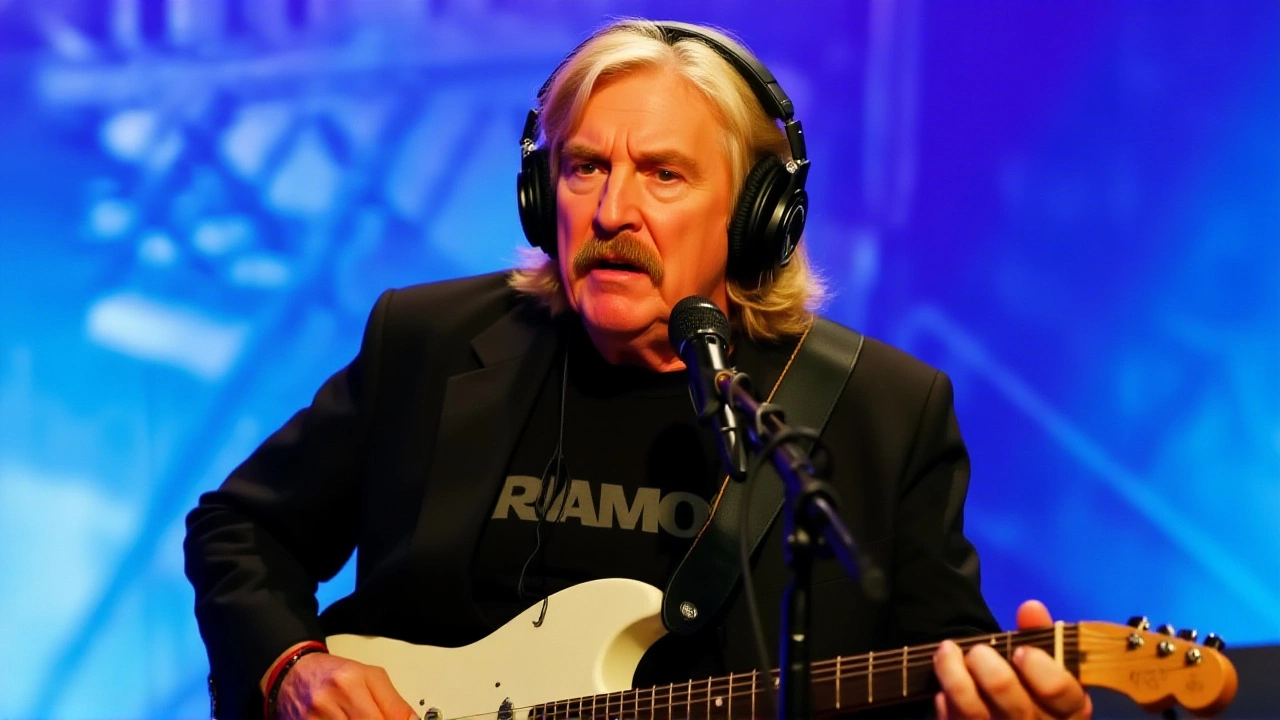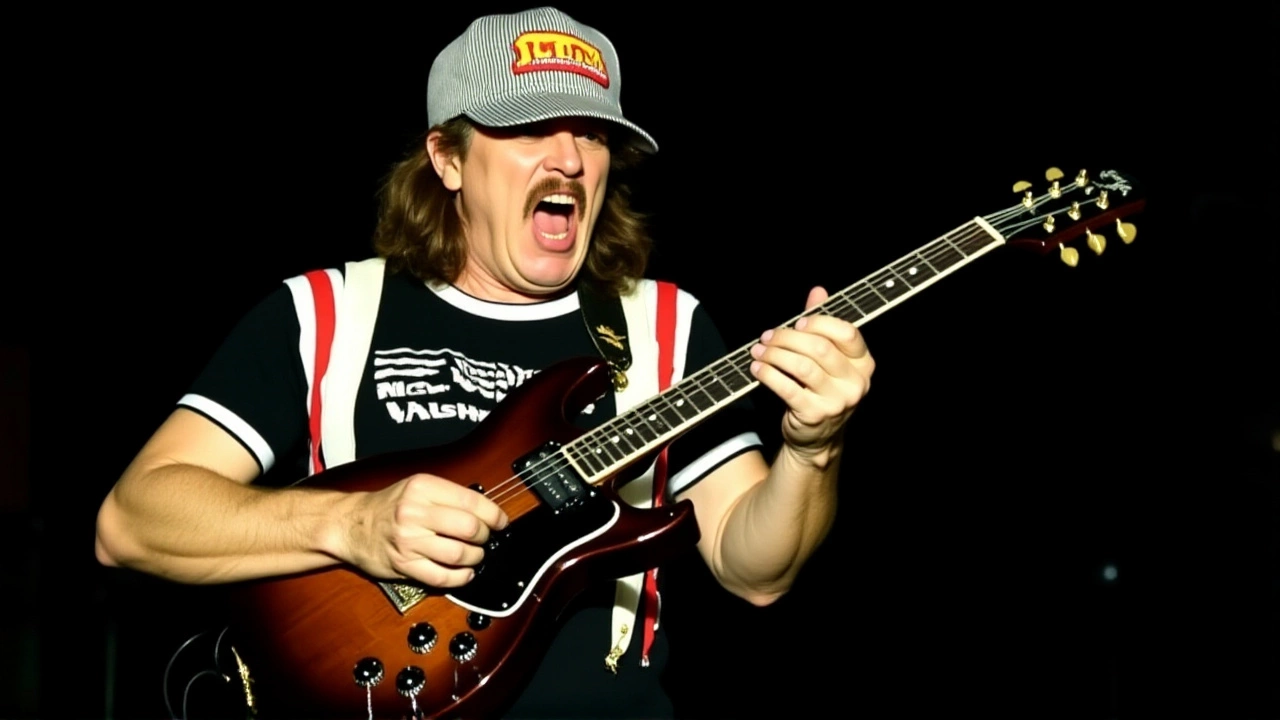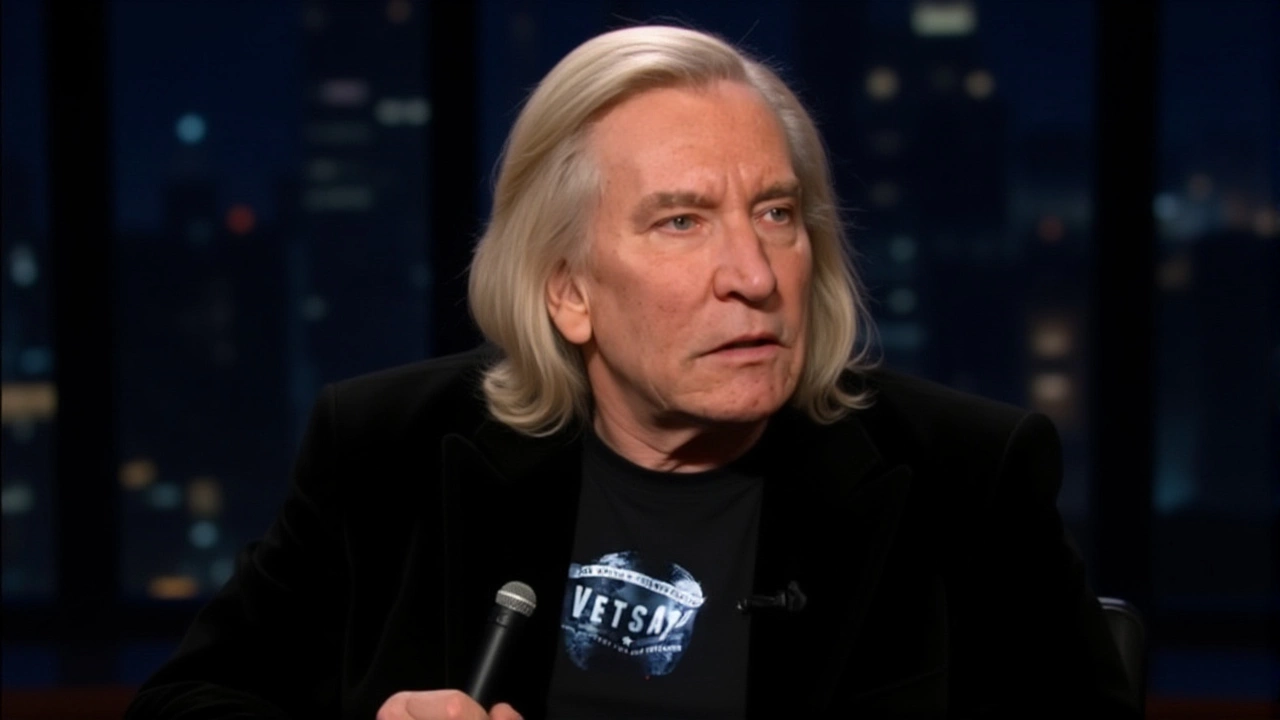When Joe Walsh talks about the artist who changed his life, he doesn’t mention guitar solos or studio techniques. He talks about healing. The Joe Walsh — rock legend, Eagles guitarist, and five-decade icon — has long been open about his musical influences: Duane Allman taught him slide, but the man he calls his biggest inspiration? That identity remains a quiet mystery, buried not in riffs but in acts of quiet generosity. According to Far Out Magazine, it was a male singer whose philanthropy left a deeper mark than any album ever could. And in Walsh’s case, that revelation isn’t just personal — it’s the heartbeat of everything he’s built since.
The Quiet Force Behind the Noise
Walsh’s career is a tapestry of loud guitars and hard-living rock lore. From the gritty blues-rock of the James Gang to the soaring harmonies of the Eagles, he’s been there. Rolling Stone ranked him No. 54 on their 2011 list of greatest guitarists. But if you dig past the fame, you find something else: a man who learned early that music’s real power lies not in fame, but in function.That lesson, he says, came from someone else — someone whose name hasn’t surfaced in interviews, press releases, or fan forums. What we know is this: the singer didn’t just make great music. He used his platform to mend broken lives. Walsh described the experience as “healing,” a word rarely used in rock journalism. And it’s telling. Because since then, Walsh has spent his own career doing the exact same thing.
VetsAid: When Rock Becomes a Lifeline
In 2016, Walsh launched VetsAid, an annual benefit concert that has since raised over $4 million for veterans’ services across the U.S. The event isn’t a flashy gala. It’s raw. Real. A gathering of musicians who know what it means to carry wounds — visible and otherwise. The ninth edition is set for VetsAid, InTrust Arena in Wichita, Kansas, Walsh’s hometown. The lineup reads like a who’s who of soulful rock: Vince Gill, Susan Tedeschi, Derek Trucks, Nathaniel Rateliff, and Ryan Bingham with the Texas Gentlemen.Tickets go on sale August 5, 2024, with a pre-sale code: WICHITA. But even if you can’t make it to Kansas, you can still be part of it. The concert streams globally via Veeps for as little as $14.99 — all proceeds going directly to Kansas-based veteran organizations. No overhead. No middlemen. Just music as medicine.

Auctioning a Lifetime: The Ghosts in the Gear
This December, Walsh is letting go of more than just memories. Life's Been Good: Joe Walsh, a two-day auction by Julien’s Auctions in West Hollywood, will offer over 800 items from his personal archive. Among them: his 1966 Framus Strato Gold Deluxe Sunburst 12-string, the very guitar he used to write “Turn to Stone” and “Mother Says” after leaving the James Gang. It’s not just a relic — it’s a time capsule of creative rebirth.Even more striking is the Neve 8078 analog console, once the heartbeat of The Record Plant. This machine recorded The Rolling Stones, Elton John, Michael Jackson’s 1993 Super Bowl halftime show, and the original mixes of Tom Petty’s VH1 Storytellers sessions. Its estimated value? $250,000 to $500,000. Walsh didn’t buy it to show off. He bought it because it made music that mattered — and now, he’s selling it to fund more of that same work.
Why This Matters
Rock stars die. Guitars rust. But legacies built on compassion? Those echo longer. Walsh’s hidden role model — whoever he was — didn’t just sing songs. He turned art into action. And Walsh, in turn, didn’t just copy that. He amplified it. Every dollar from VetsAid, every bid on that Neve console, every livestreamed note from Wichita — it’s all part of a quiet revolution in rock culture.It’s easy to forget, in an era of viral hits and influencer culture, that the most enduring stars aren’t the ones with the most followers. They’re the ones who give away their stage, their gear, their time — and ask for nothing in return. Walsh’s mystery mentor taught him that. Now, he’s teaching the world.

What’s Next?
Walsh’s involvement with The Voice as a Mega Mentor in November 2024 shows he’s still shaping the next generation. His Instagram, @joewalshofficial, posts concert nights like diary entries — “Night #43,” “Night #42” — a quiet rhythm of commitment. He’s not chasing relevance. He’s building it, one benefit, one auction, one veteran’s life at a time.And if you ever wonder why he still plays, why he still tours, why he still gives away his most prized possessions — look no further than that unnamed singer, whose name may never be known, but whose impact echoes louder than any solo ever could.
Frequently Asked Questions
Who is Joe Walsh’s musical role model?
The identity of the singer Joe Walsh calls his biggest musical inspiration has not been publicly revealed, despite multiple interviews and reports. Walsh has emphasized that the individual’s philanthropic work — not their music — was the defining influence, describing it as "healing." While Duane Allman was a technical mentor, this unnamed figure shaped Walsh’s values, inspiring his own charity work through VetsAid.
How much has VetsAid raised for veterans?
As of 2024, VetsAid has distributed over $4 million in grants to veteran service organizations nationwide. The 2025 concert in Wichita is expected to add significantly to that total, with all proceeds from ticket sales, livestreams, and merchandise directly funding local Kansas veteran programs, including housing, mental health services, and job training.
What’s the most valuable item in Joe Walsh’s auction?
The most valuable item is the Neve 8078 analog recording console, estimated between $250,000 and $500,000. Used to record iconic albums by The Rolling Stones, Eagles, Elton John, and Michael Jackson’s 1993 Super Bowl performance, it’s one of the most historically significant consoles in rock history. Walsh donated the proceeds from its sale to fund VetsAid’s future initiatives.
Why is the VetsAid concert in Wichita significant?
Wichita is Joe Walsh’s hometown, making the event deeply personal. By holding VetsAid there, he ensures the funds directly benefit Kansas veterans, many of whom are served by local nonprofits with limited resources. The choice reflects his belief in community-driven change — not just national charity. The InTrust Arena, a 10,000-seat venue, symbolizes his roots and his reach.
What songs did Joe Walsh write on the Framus 12-string guitar?
Walsh used his 1966 Framus Strato Gold Deluxe 12-string extensively on his 1972 solo album Barnstorm, including the classic rock staples "Turn to Stone" and "Mother Says." He acquired it after leaving the James Gang, seeking a guitar that could handle live performance with rich, ringing tones. "Turn to Stone" remains a staple on classic rock radio and is often cited as one of his most emotionally resonant compositions.
How does Joe Walsh’s charity work compare to other rock stars?
While many artists support veterans, few match Walsh’s sustained, hands-on approach. Unlike one-off benefit concerts, VetsAid has operated annually for nearly a decade, with Walsh personally involved in planning, fundraising, and performance. His auction of irreplaceable gear — rather than just donating cash — sets him apart. He’s not just writing checks; he’s sacrificing pieces of his legacy to fund others’ survival.
